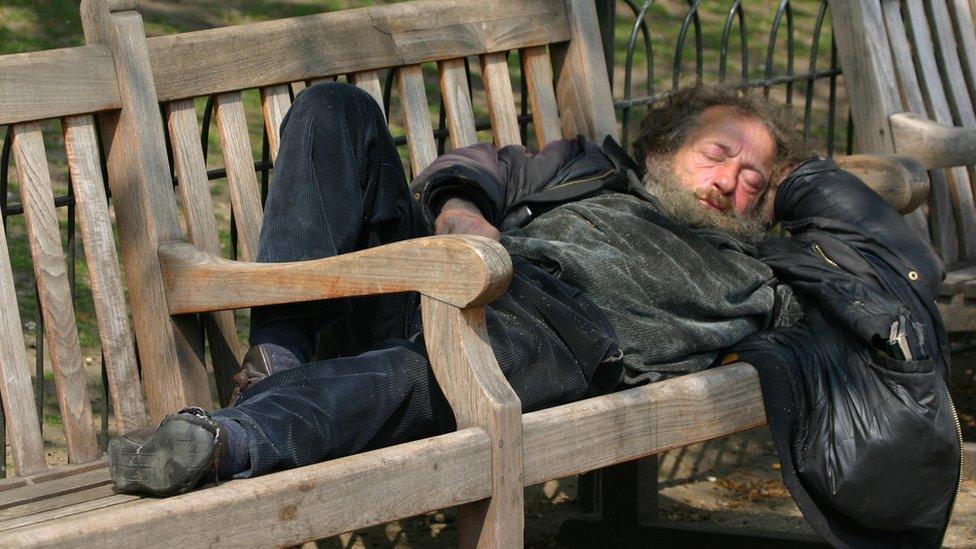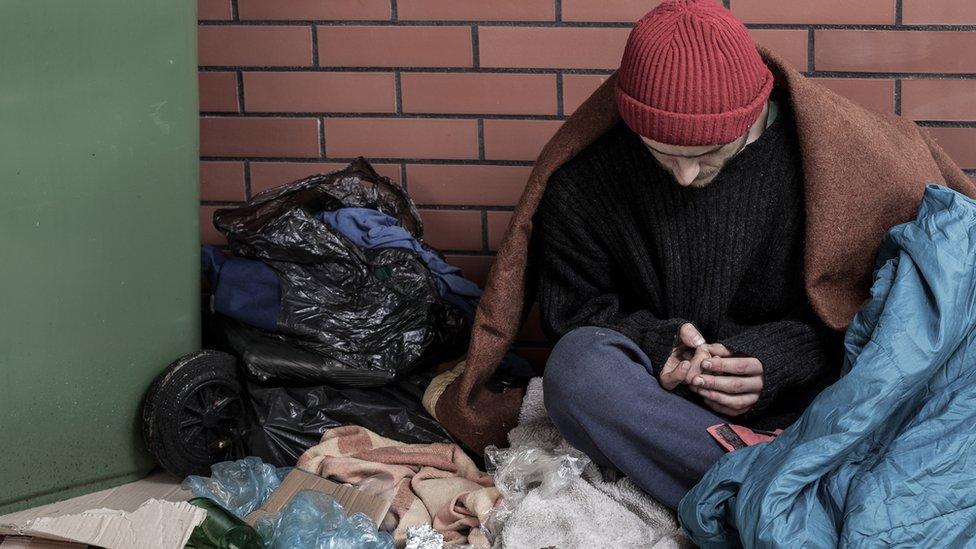Homelessness Reduction Bill to become law
- Published

Homelessness went up by 16% last year
A new law which will require earlier intervention by councils to prevent homelessness has passed its final parliamentary hurdle.
The Homelessness Reduction Bill also requires councils to provide advice and help to all affected, not just those protected under existing laws.
The private member's bill, introduced by Conservative MP Bob Blackman, received government backing.
The government will be providing £61m to councils to meet the costs incurred.
Mr Blackman, who claimed on Twitter it was the most expensive private member's bill ever passed, said: "I am immensely proud of everything that has been accomplished in this bill.
"It is profoundly wrong that homeless people who approach their council for help can be turned away to sleep on the street at the moment and that legislation in this area hasn't changed for the last four decades."
Government backing
The Homelessness Reduction Bill will oblige councils to start assessing someone at risk of being made homeless 56 days before losing their home. Currently, the threat of homelessness is defined as starting 28 days before the person loses their home.
The government took the decision to back the private member's bill last year, with Communities Secretary Sajid Javid saying ministers were "determined to do all we can to help those who lose their homes and provide them with the support they need to get their lives back on track".
The bill comes as the number of people sleeping on the streets increased by 16% last year, up from 3,569 in 2015 to 4,134 in 2016.
'Bill will struggle'
However, local government representatives feel that without additional funding and support for councils, the additional legal protections introduced by the bill will mean little in practice.
Lord Porter, chairman of the Local Government Association, said: "It is clear that legislative change alone will not resolve homelessness. It is crucial that the government recognise and address the wider factors that are increasing homelessness, such as the lack of affordable housing and welfare reforms. Without this, the bill will struggle to achieve its aim of reducing homelessness.
"Councils need powers and funding to address the widening gap between incomes and rents, resume their historic role as a major builder of new affordable homes and join up all local services - such as health, justice and skills. This is the only way to deliver our collective ambition to end homelessness."
The bill passed in the Lords unopposed.
- Published27 January 2017
